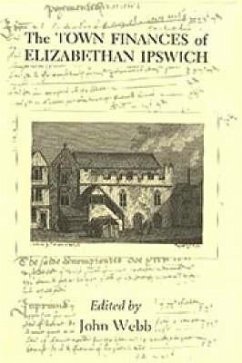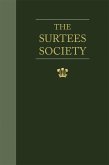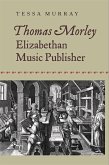The treasurers' and chamberlains' accounts of Elizabethan Ipswich are a detailed record of the annual income and expenditure of the town's ruling body during one of the most fascinating periods of its history. A major source for any detailed study of the Suffolk borough - which was then among the country's ten richest provincial towns - the accounts not only shed light on sixteenth-century urban administration but also provide vivid insights into the social and economic life of the period. Out of two extensive parallel series the editor has selected ten accounts, five from each collection, to publish in full. The income derived from Corporation rents, local taxes, financial penalties, freemen's admissions and other sources is revealed, followed by items of expenditure which range over almost every aspect of Elizabethan town life. Soldiers are seen being equipped for expeditions to Scotland, Ireland and elsewhere. Criminals are hanged, vagrants whipped, and scolds tied to the cucking-stool and plunged into the river. The town minstrels, itinerant players and other entertainers are rewarded for amusing the townspeople at banquets and on other civic occasions. Influential members of the Suffolk gentry, and national heroes such as Sir Martin Frobisher and the Trimley circumnavigator Thomas Cavendish, are sent gifts. When, in 1568, a school of whales became stranded in the estuary, measures were taken for their disposal. A few years later, an expected, but apparently aborted, visit to the town by the Queen led to urgent efforts to 'bewtify' the streets and public buildings. Entries relating to the poor supplement information in the editor's earlier volume for the Suffolk Records Society,Poor Relief in Elizabethan Ipswich (1966). A short but detailed introduction and a series of tables and appendices put the selected texts and the work of the financial officers into historical perspective.








